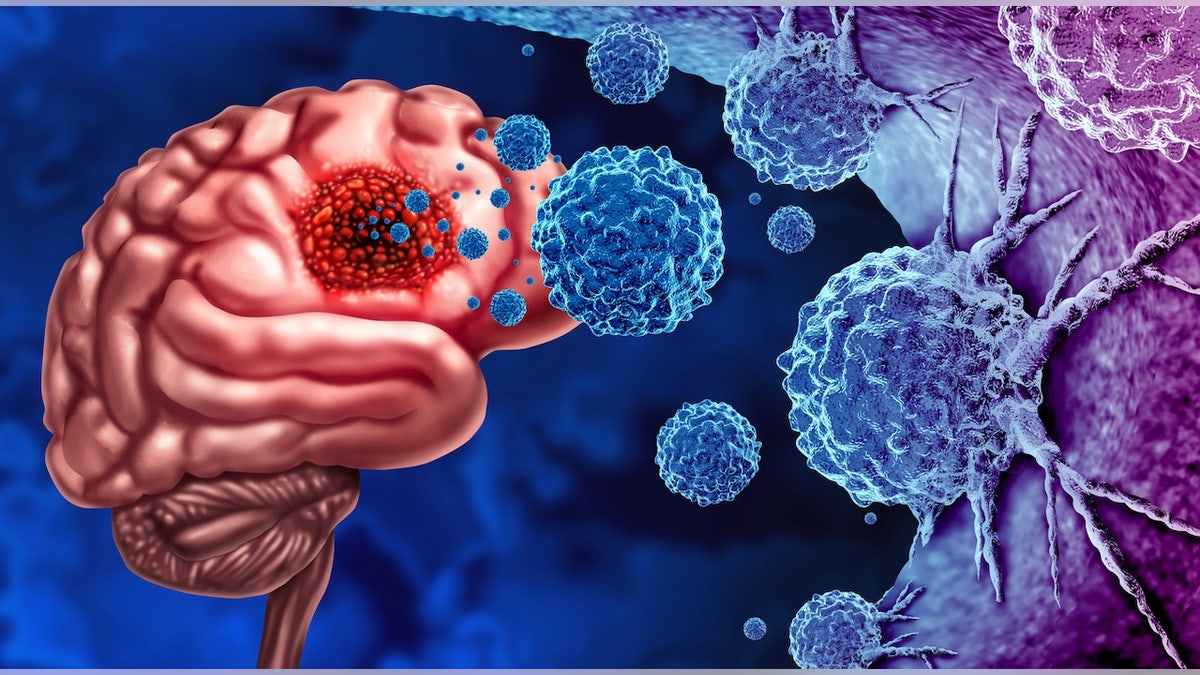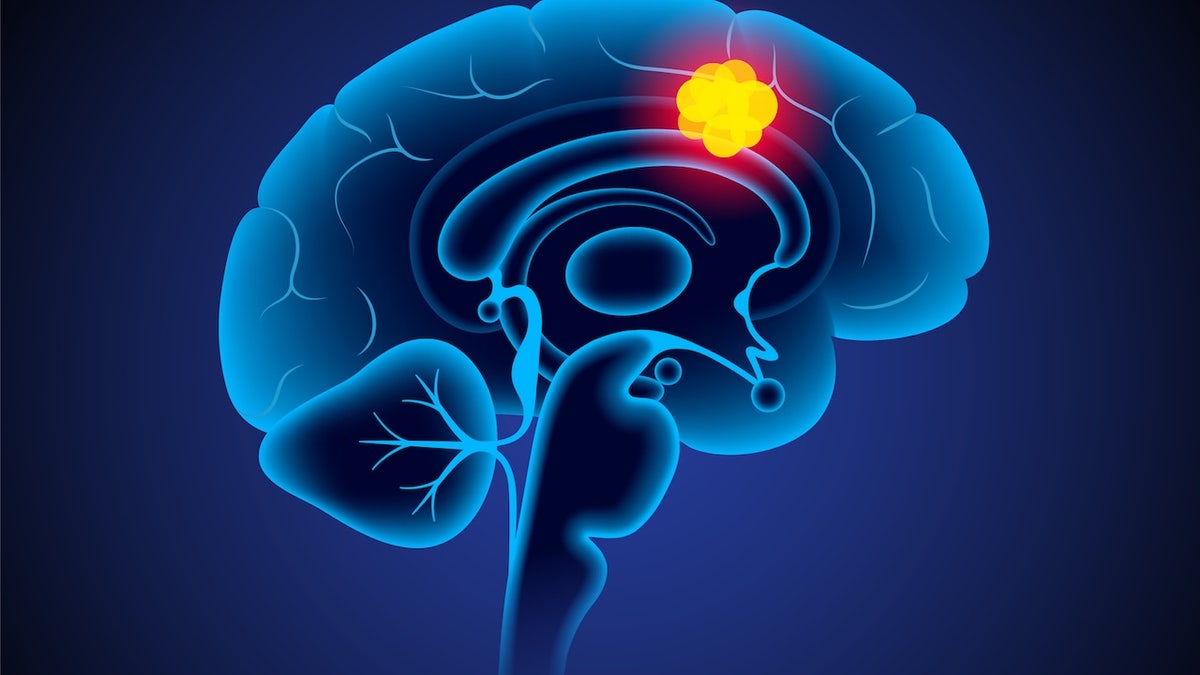Glioblastoma, the most aggressive and deadly type of brain cancer, is known to have a very poor prognosis, but a new study suggests that a drug that releases pain could extend survival.
General Mass Brigham researchers have found that an already approved drug (a pain relief and anti-sexed medication called Gabapentina) has been related to improved survival in patients with glioblastoma.
The findings were published in Nature Communications last week.
Michael Bolton had strange symptoms before the diagnosis of brain cancer: “something goes wrong”
Inspired by previous mouse studies that showed Gabapentina’s potential for guiding tumors, researchers studied the medical results of about 700 patients with glioblastoma.
Many of them had already been taking Gabapentin to relieve nerve pain, according to a statement from MGB.
Glioblastoma, the most aggressive and deadly type of brain cancer, is known to have a very poor prognosis, but a new study suggests that a drug that releases pain could extend survival. (Istock)
Patients who were taking the drug survived four months longer than those who were not 16 months compared to 12 months, which was described as “statistically significant”.
“Ultimately, our aim was to highlight the emerging role of cancer neuroscience in GBM progression and emphasize the importance of exploring creative strategies to therapeutically orientate this evolutionary axis of the neural axis,” said the main author Joshua Bernstock, MD, PhD, a clinical colleague in the Department of Brigham Hospital, In Fox News Digital.
Breast cancer drug could help extend the survival of children with brain tumors
The team was surprised by the survival benefit, Bernstock said.
“It is always incredible to see that a hypothesis comes to life,” he said. “I also really enjoyed seeing the decrease in Seric Levels of TSP-1 at the UCSF Cohort, positioning it as a response biomarker.”

A relay of pain and an anti-sexual medication called Gabapentina have been linked to improved survival in patients with glioblastoma. (Istock)
From the initial findings, Bernstock contacted researchers at the University of California, San Francisco (UCSF) to study more patients with glioblastoma.
Between the 379 patients in the USCF, the same result was observed: those who took Gabapentin lived 20.8 months on average, compared to 14.7 months for those who did not take the drug.
“”There have been very few advances in the survival of patients with GBM since the early 2000’s. “
“In the two cohorts (1,072 patients in total), the use of Gabapentina was constantly associated with a statistically significant improvement in survival,” Bernstock told Fox News Digital.
The researchers also realized that the Gabapentina group had lower levels of a protein called TSP-1, which is in the blood serum, a finding that “needs subsequent research.”

Glioblastoma claims the life of about 14,500 north -Americans each year. The five -year survival rate is only 6.9%. (Istock)
“There has been very few advances in the survival of GBM patients since the early 2000’s,” Bernstock said in the statement. “We need to think more creatively about emerging biology in these tumors and how to guide them.”
What to know about Gabapentin
The Food and Drug Administration (FDA) of the United States initially approved Gabapentin in December 1993 to treat adult seizure activity; Approval was expanded to include children in 2000.
Two years later, the agency approved Gabapentin for nervous pain after shingles, according to the agency.
The medicine is often prescribed for use outside the label to treat a range of pain conditions, according to studies.

The medicine is often prescribed for use outside the label to treat a range of pain conditions, according to studies. (Istock)
Some of the most common side effects of gabapentine include fatigue, headache, dizziness, fever, nausea and vomiting, memory loss, problems with speaking, weight gain, vision problems, movement problems and recurring infections, according to Cleveland Clinic.
Some medicines may interact with Gabapentina. Patients need to talk to a doctor if they experience serious or persistent side effects, they recommend experts.
Potential limitations and following steps
The study had some limitations, mainly retrospective and was not controlled.
“While findings are promising, the study is retrospective: patients were not given a controlled and random gabapentine to directly evaluate their effects,” Bernstock told Fox News Digital.
“As such, larger prospective clinical trials are needed to validate these results and further investigate the role of Gabapentina and TSP-1 in GBM progression.”
Click here to register -you are in our health newsletter
Bernstock said he is “cautiously optimistic” for findings.
“Although Gabapentin is approved by the FDA and generally well tolerated, it is not advisable to change clinical practice based on these findings only without a controlled study, which our UCSF collaborators are working on,” he said.
“It is not advisable to change clinical practice based on these findings only without a controlled study.”
“That said, in Patients with GBM developing neuropathic pain or convulsions after the craniotomy, there may be a reason to consider gabapentine more easily than other agents.”
For more health items, visit www.foxnews.com/health
Glioblastoma, described by Bernstock as “a relentless and almost universally fatal disease”, is the most common type of primary brain cancer, according to the Mayo clinic.
The disease claims the life of about 14,500 -Americans each year. The five -year survival rate is only 6.9%.
#Patients #brain #cancer #received #medication #pain #lived #longer #studies
Image Source : www.foxnews.com
